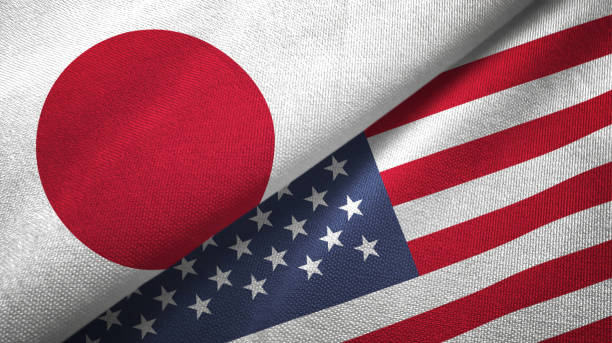The Importance of Japanese Interpreters in Global Dialogue

The role of Japanese interpreters in America took shape as ties between Japan and the United States grew stronger after World War II. As businesses expanded and diplomatic efforts increased, interpreters became key players in breaking language barriers and ensuring smooth communication.
With Japan's rise as an economic and technological powerhouse, interpreters were at the forefront of critical discussions, from business deals to international collaborations. Their work not only translated words but also helped build understanding between two distinct cultures.
Organizations like the American Translators Association emphasize the value of skilled interpreters, and the U.S. Department of State explores the history of the relationship between Japan and the United States.
The Vital Role of Japanese Interpreters in Communication

Japanese interpreters have a far-reaching impact, connecting Japan with other nations, especially the United States. Their work spans various fields, each requiring specific expertise and skills.
Business and Economics
In global business, Japanese interpreters are key to successful negotiations and partnerships. They ensure clear communication while respecting cultural differences. The Japan External Trade Organization (JETRO) plays a key role in fostering international trade, where interpreters are indispensable.
Diplomacy and Politics
In diplomacy, interpreters are critical for clear communication during high-level discussions. They help maintain strong relationships between Japan and other nations. The Ministry of Foreign Affairs of Japan showcases how interpreters contribute to international diplomacy.
Academic and Cultural Exchanges
Interpreters also play a big role in education and cultural exchange, helping share Japan’s knowledge and traditions worldwide. The Japan Foundation frequently works with interpreters to promote cultural understanding and collaboration.
Media and Public Relations
In the media, interpreters ensure accurate communication when Japanese public figures engage with international audiences. NHK World-Japan demonstrates how interpreters bridge cultural and linguistic gaps in cross-cultural media interactions.
Legal and Medical Fields
In legal cases, interpreters ensure fair trials by helping Japanese speakers understand U.S. legal proceedings. The National Association of Judiciary Interpreters and Translators highlights their vital role in justice.
In healthcare, interpreters help Japanese patients communicate with American doctors, improving patient care. The International Medical Interpreters Association emphasizes their importance in the medical field.
Bridging Cultural and Linguistic Gaps
Japanese interpreters do more than translate words—they bridge the cultural and linguistic gaps between two very different worlds. They interpret nuances like keigo (honorific speech) and non-verbal cues that are deeply rooted in Japanese culture. This is crucial in business or diplomacy, where miscommunication can have serious consequences.
Interpreters must also handle idioms, humor, and expressions unique to Japanese. Their job involves understanding not just language but also cultural values and social contexts, ensuring that every message is conveyed with accuracy and respect.
Challenges in Interpretation
Japanese interpreters face challenges that require sharp skills and adaptability;
-
Linguistic Complexity: Japanese has different levels of formality, regional dialects, and unique characters, which can be hard to translate accurately.
-
Pressure: In high-stakes meetings, interpreters must think fast and remain accurate.
-
Neutrality: Interpreters must deliver messages without personal bias.
-
Technology: While tools help, interpreters need to balance technology with their expertise.
-
Field Knowledge: Each industry has its own terminology, requiring interpreters to stay informed and adapt quickly.
To overcome logistical challenges, many agencies turn to interpreter management software, which simplifies scheduling, coordination, and real-time updates for interpreters.
The strategic role of Japanese interpreters in facilitating dialogue between Japan and the global community, particularly America, is significant. Their expertise goes beyond language proficiency, encompassing a deep understanding of cultural dynamics.
This is crucial in diplomatic negotiations and international business where precision and cultural sensitivity are paramount.
Japanese interpreters face challenges such as real-time interpretation and maintaining accuracy under pressure. Their ability to adapt to linguistic and cultural shifts is essential in a world of frequent and varied international interactions.
Japanese interpreters are essential in connecting Japan with the world, particularly the U.S. Their work goes beyond words, fostering understanding and cooperation in diplomacy, business, and culture.
Managing interpreters effectively is critical to delivering quality services. Interpreter IO simplifies interpreter management, helping you organize schedules, streamline communication, and improve service delivery.
With systems tailored for Japanese interpreting services, Interpreter IO can help you provide a seamless experience for clients.
Explore how Interpreter IO can enhance your interpreting services. Let us help you take your interpreter management to the next level.
